Turkey’s Make-or-Break Election
The forces that brought Erdoğan to power may be his downfall in Turkey’s May 14 elections. Here are a selection of key Journal of Democracy essays from the last two decades of his rule.
The forces that brought Erdoğan to power may be his downfall in Turkey’s May 14 elections. Here are a selection of key Journal of Democracy essays from the last two decades of his rule.
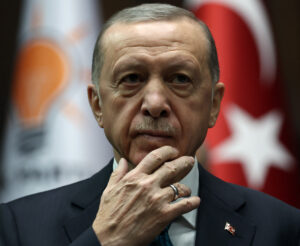
The Turkish president came to power as an antiestablishment everyman. Twenty years later he is an authoritarian leader clinging to power. Will the forces that catapulted him to power be his demise?
Our just-released April issue, featuring “The Putin Myth” by Kathryn Stoner, is free through May 15.
Even in an era haunted by democratic decline, Jason Brownlee and Kenny Miao find that wealthy democracies are unlikely to collapse in their contribution to the October 2022 Journal of Democracy. Six top experts in the field debate their conclusions.
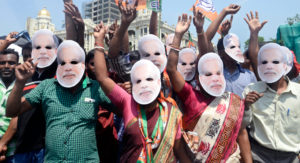
With India’s next general election just a year away, here are five of his Journal of Democracy essays that offer critical analysis of the world’s largest democracy at a crucial time.
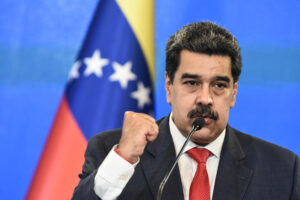
The Venezuelan dictator defied sanctions, international isolation, and massive protests. He appears to have a firmer footing than he’s had in years. Now what?

Russia’s invasion of Ukraine isn’t just another land grab. It’s an attempt to recolonize lost empire, and threatens to return us to the age of conquest.

The suffragists imagined that a greater role for women in democratic politics would lead to a more peaceful world. Few realize how right they were.
To mark International Women’s Day, the Journal of Democracy looks at how women are shaping the fight for freedom.
Vladimir Putin’s full-scale invasion of Ukraine began one year ago. The war has inflicted a heavy toll on Russia in addition to the mass carnage in Ukraine. But Ukrainians are fighting valiantly and finding creative means of resistance.
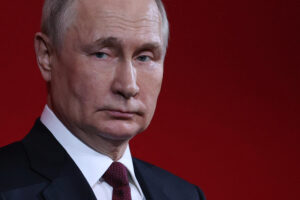
For twenty years, the Russian autocrat enjoyed a string of good fortune in coming to power and cementing his rule. He had raised Russia’s standing in the world. Then he invaded Ukraine.

His military didn’t just fail. Ordinary Ukrainians, Russians, and people across the globe are creatively and nonviolently protesting Putin’s war on Ukraine, and they are making a difference.
Ten of the former ambassador’s best JoD essays spanning the last thirty years.

The Russian leader declared war on his country’s independent journalists. But Russian media outsmarted him by taking their operations overseas. They are now reaching more people than ever before.
The Journal of Democracy has analyzed democracy’s fortunes across the globe, from Ukraine to Afghanistan and the Philippines, from Hungary to Tunisia. Here are our top-ten most-read essays from 2022.
In 2022, we began publishing shorter, exclusively online pieces. No topic mattered more to you than Russia’s disastrous war in Ukraine. We also published essays from the sharpest minds on protests in China and Iran, instability in Pakistan, and more.
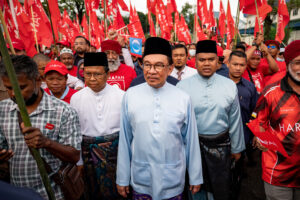
The democratic icon’s path to prime minister has been tortuous and long. But is Malaysia’s pluralism slipping away precisely when Anwar is getting his shot to lead the nation?
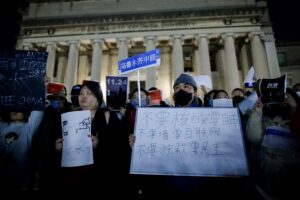
China’s recent protests marked a crucial milestone: The mainstream Chinese public, at home and abroad, finally spoke up for the Uyghurs and their plight.
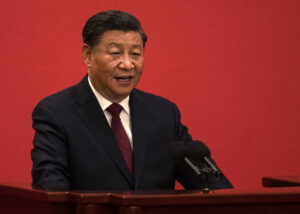
Nationwide protests against Xi Jinping’s zero-covid policy caught the Chinese Communist Party off-guard. Expect the Party’s security apparatus to strike back with quiet precision.
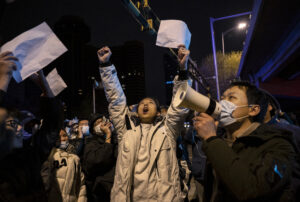
Chinese citizens from Urumqi to Shanghai took to the streets, blank sheets of white paper in hand, to denounce the CCP and call for change. Xi Jinping’s repression and zero-covid lockdowns has united the public in empathy and anger.